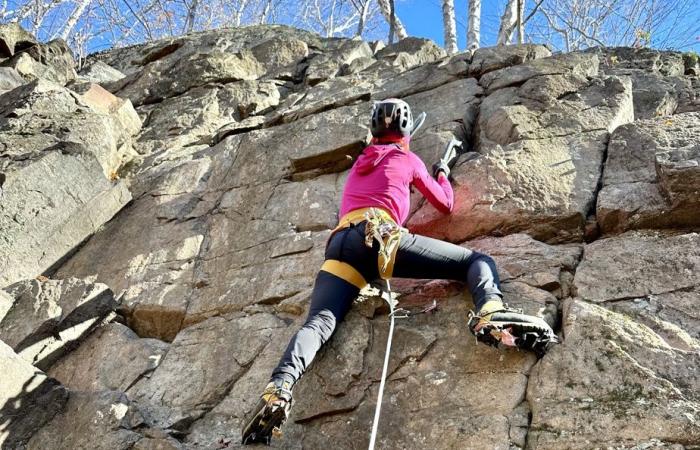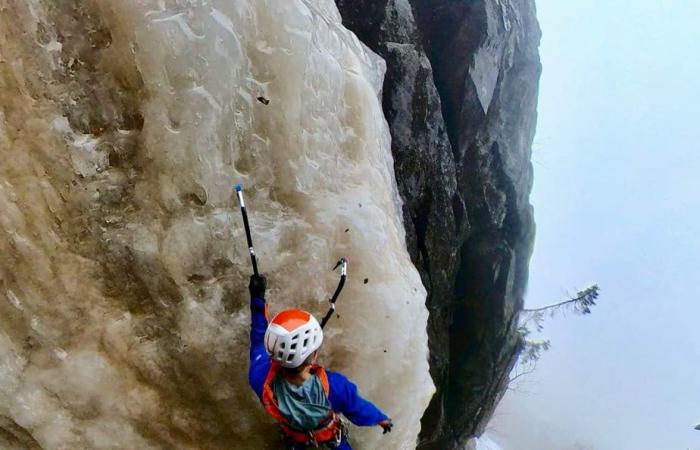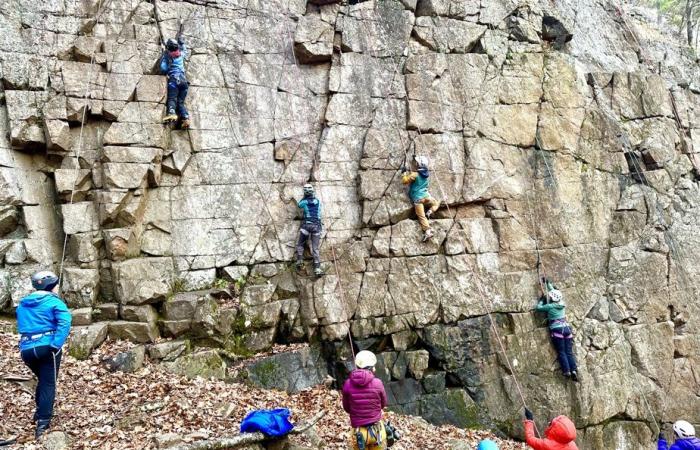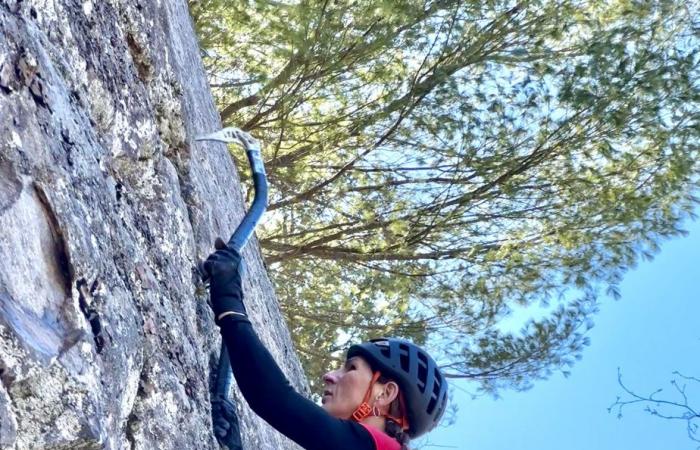In recent years, the ice climbing season has become shorter: the ice takes longer to form at the start of the season, it melts more quickly at the end of winter. For ice climbers, there are two ways to react: curl up in a ball and moan, or engage in an increasingly popular type of climbing, ice climbing. dry tooling.
Posted at 11:30 a.m.
It involves climbing rock faces with ice climbing equipment, i.e. ice axes and crampons. Hence the name of dry toolingor the use of tools on a dry wall (without ice or snow). There is no equivalent in French yet.
“It’s a big movement that started from Europe because there, the ice climbing seasons, which used to last three months, now last three weeks because of global warming,” says Marty Theriault, a climber. very involved in the development of dry tooling in Quebec.
“And then people discovered that in itself, the dry tooling is a really fun sport. »
It is particularly a question of movement.
“I can almost use the term “artistic” for the movement, it’s almost vertical gymnastics,” says Mr. Theriault. There are certain movements that strike the imagination, like the figure 4while you literally swing one leg over one arm. »
The result is a sort of human pretzel hanging from the wall.
Marty Theriault adds that using ice axes on rock is a kind of game of angles.
PHOTO PROVIDED BY MARTY THERIAULT
Marty Theriault at work. THE dry tooling allows you to go from ice to rock, a style of climbing that is called mixed.
Before putting your weight on a hold, you must test all possible angles with the ice ax and apply tension.
Marty Theriault, climber
Mountaineer and climber Nathalie Fortin also works to develop dry tooling in Quebec, particularly with workshops intended for women.
“When people try this, they get on board, they have stars in their eyes,” she says.
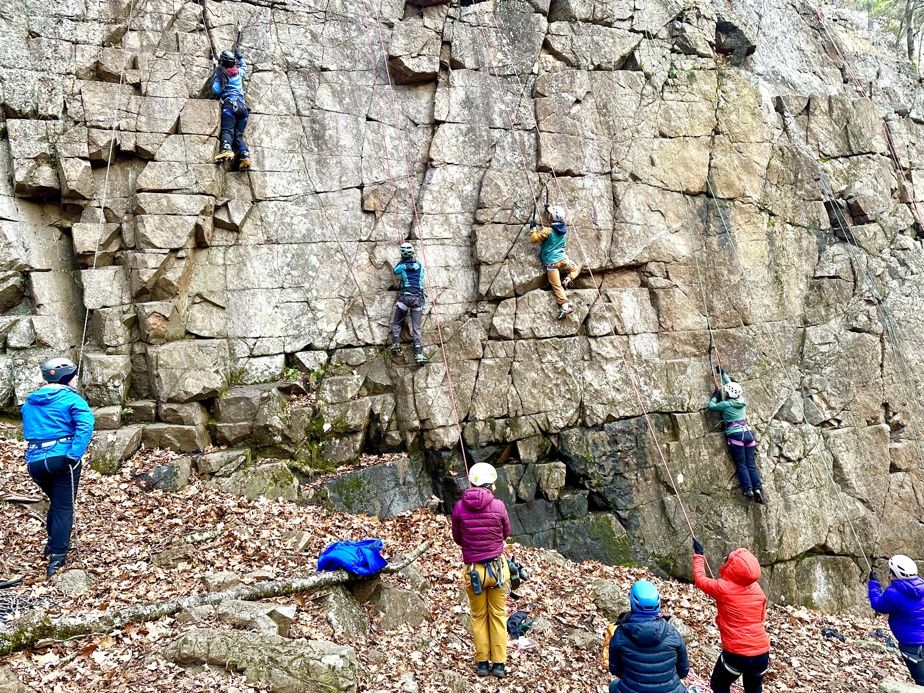
PHOTO PROVIDED BY NATHALIE FORTIN
Nathalie Fortin organizes sessions of dry tooling for women, through her organization Women and Blades. You can follow her on her Facebook page Nathalie Fortin Mountaineer-Speaker.
She explains that you have to be imaginative in looking for holds, finding ways to properly support or jam the ice ax blade. And then, there is something powerful about having tools as robust as climbing axes in your hand.
It's a new sensation to tame. Particularly the sound of the blade on the rock, specifies Marty Theriault. Besides, there is no question of going climbing everywhere with this type of equipment.
“There is a big law in dry tooling : we do not go on the beautiful established rock routes, he says. It can scratch the walls and damage sockets. You have to go to places with a little less beautiful rock, places which remain wetter and which are therefore less attractive to rock climbers. »
This is how the Montagne d’Argent climbing site, for example, allows dry tooling on a certain number of well-identified routes only.
We need to do education. If we are going to scratch classic rock climbing routes, it will not help the movement of the dry tooling.
Marty Theriault, climber
He is working to set up a Canadian organization that would oversee the dry tooling in the country. As director of this organization for the east of the country, he hopes to promote the creation of a Quebec Cup. Because there are competitions dry tooling in the rest of the world, and that the sport should be presented at the next Winter Olympics, under the name of ice climbing. Which is a bit ironic, given the lack of ice.
For her part, Nathalie Fortin would like to see more and more people turn to dry tooling.
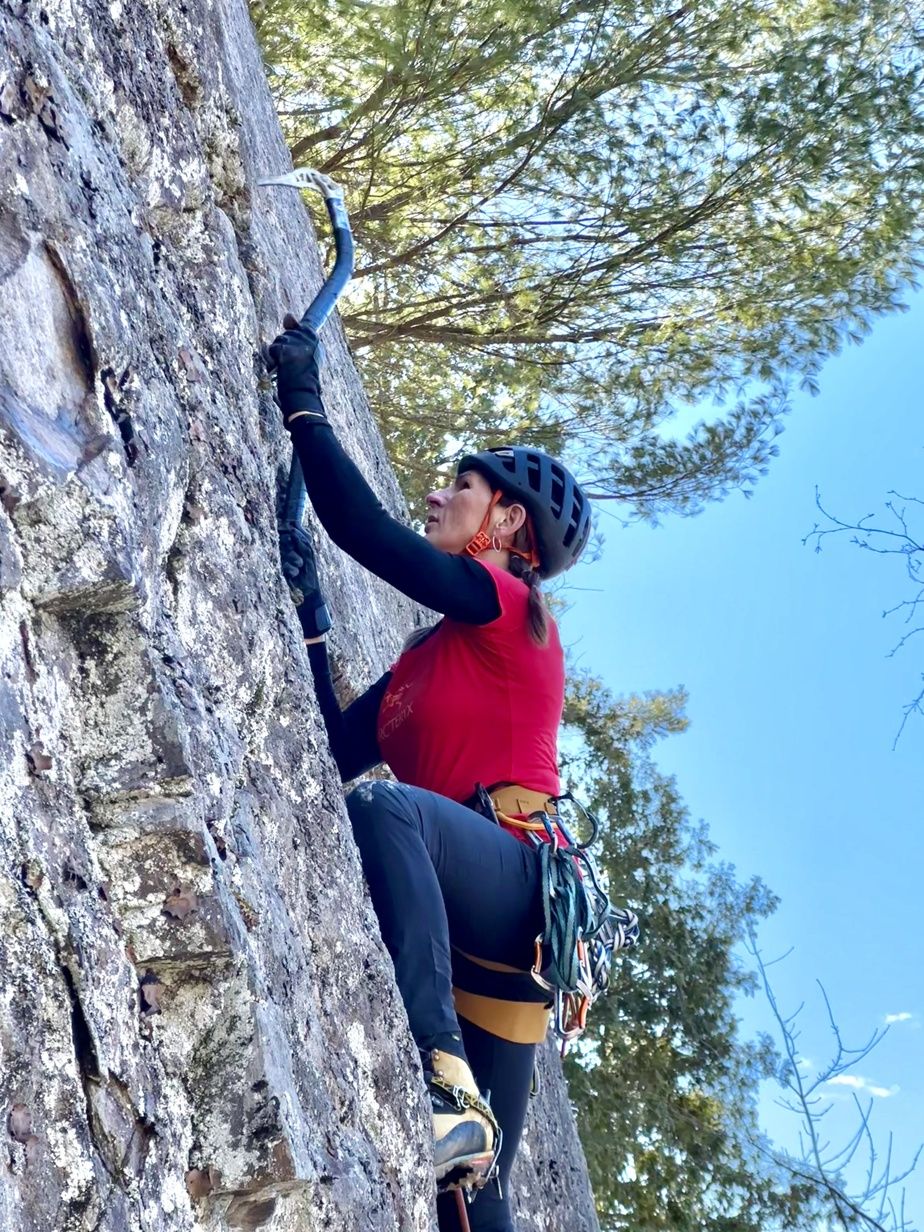
PHOTO PROVIDED BY NATHALIE FORTIN
Nathalie Fortin, a recognized Quebec climber, is passionate about dry tooling.
The more followers we have, the more we will be able to expand our community and the gyms will have no choice but to follow.
Nathalie Fortin, mountaineer and climber
It is indeed possible to make dry tooling indoors, but several gyms are still reluctant, in particular because insurers can be cautious.
Both Nathalie Fortin and Marty Theriault maintain that the dry tooling is no more dangerous than ice climbing.
Climbing plays a big role in Marty Theriault's life. He recently left the Canadian Armed Forces after almost 20 years of service.
“After years in Afghanistan, I suffered from post-traumatic shock syndrome,” he says. Most people find an escape in drugs, alcohol, gambling, sex, violence, stuff like that. For me, it was climbing that played this role. »
“All climbers know that when you are on a wall, you no longer think about your problems, you think about the next hold or the next protection,” he adds. It acts like a drug, but since it's a sport, it's a little healthier. »
Video suggestion
On the Matterhorn ridge
The summit of the Matterhorn is a dizzying ridge.
Watch the full video
Number of the week
693
This is the elevation, in meters, of Ontario's highest point, Ishpatina Ridge. For high altitude mountaineering, you have to iron.

